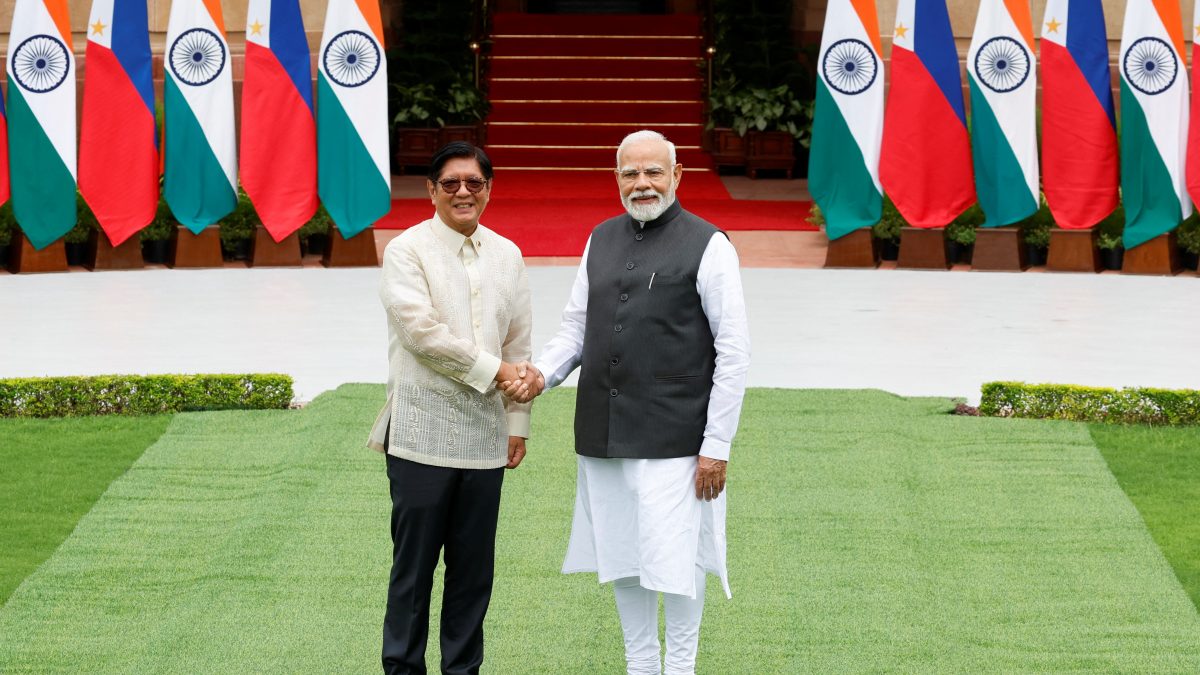

India and the Philippines have elevated their relationship to a strategic partnership, with a strong emphasis on bolstering security cooperation in the Indo-Pacific region and strengthening maritime ties. This decision, announced during Philippine President Ferdinand R. Marcos Jr.'s visit to New Delhi on August 5, 2025, marks a new chapter in the 75-year diplomatic relations between the two countries.
Prime Minister Narendra Modi highlighted the strengthening of defense relations as a symbol of deep mutual trust. Both leaders underscored their commitment to a peaceful, secure, and prosperous Indo-Pacific region, governed by a rules-based order and freedom of navigation in accordance with international laws. President Marcos Jr. emphasized that this partnership signifies a shared commitment to a free, open, and inclusive Indo-Pacific.
The strategic partnership aims to unlock the full potential for bilateral, regional, and international cooperation, serving as a foundation for mutually beneficial collaboration. A comprehensive action plan for 2025-2029 has been formulated to translate this partnership into tangible results. The two countries also commemorated their 75th anniversary of diplomatic relations by releasing a postage stamp.
Defense and security cooperation form a core pillar of the elevated relationship. Several agreements were signed to facilitate military-to-military staff talks between the air forces, armies, and navies of both countries. These agreements aim to enhance information sharing, training exchanges, and overall coordination between the armed forces. India and the Philippines also agreed to boost cooperation between their coast guards, building on recent joint patrols in the West Philippine Sea.
The increasing maritime cooperation is particularly significant against the backdrop of rising tensions in the South China Sea. For the first time, Indian navy warships conducted joint patrols with their Philippine counterparts in the West Philippine Sea, demonstrating a united front in promoting maritime domain awareness and regional security. This joint naval exercise, which concluded on August 4, 2025, included a series of high-level naval operations aimed at strengthening tactical coordination and joint maritime capabilities. Activities encompassed rendezvous operations, communication checks, air defense exercises, and maneuvering drills.
Both India and the Philippines have expressed concerns about China's growing assertiveness in the region. India has voiced its support for the Philippines' maritime claims, aligning with the 2016 South China Sea arbitral ruling. This convergence of strategic interests has driven the two nations to deepen their partnership and build resilience against coercive tactics in the maritime domain.
Beyond security, the strategic partnership encompasses various other areas of cooperation. These include trade and economics, where both countries aim to strengthen ties and explore a bilateral preferential trade agreement. India is also committed to increasing the number of Quick Impact Projects in the Philippines and cooperating in the development of sovereign data cloud infrastructure. Cooperation in science and technology, tourism, culture, and digital technologies are also key components of the enhanced relationship.
President Marcos Jr. acknowledged India's role as a first responder in the Indo-Pacific region and expressed a desire to collaborate on various challenges, including maritime security, supply chain resilience, food security, and counter-terrorism. The Philippines also recognizes India's growing defense footprint and indigenous defense industry, citing the BrahMos missile project as a prime example of successful defense cooperation.